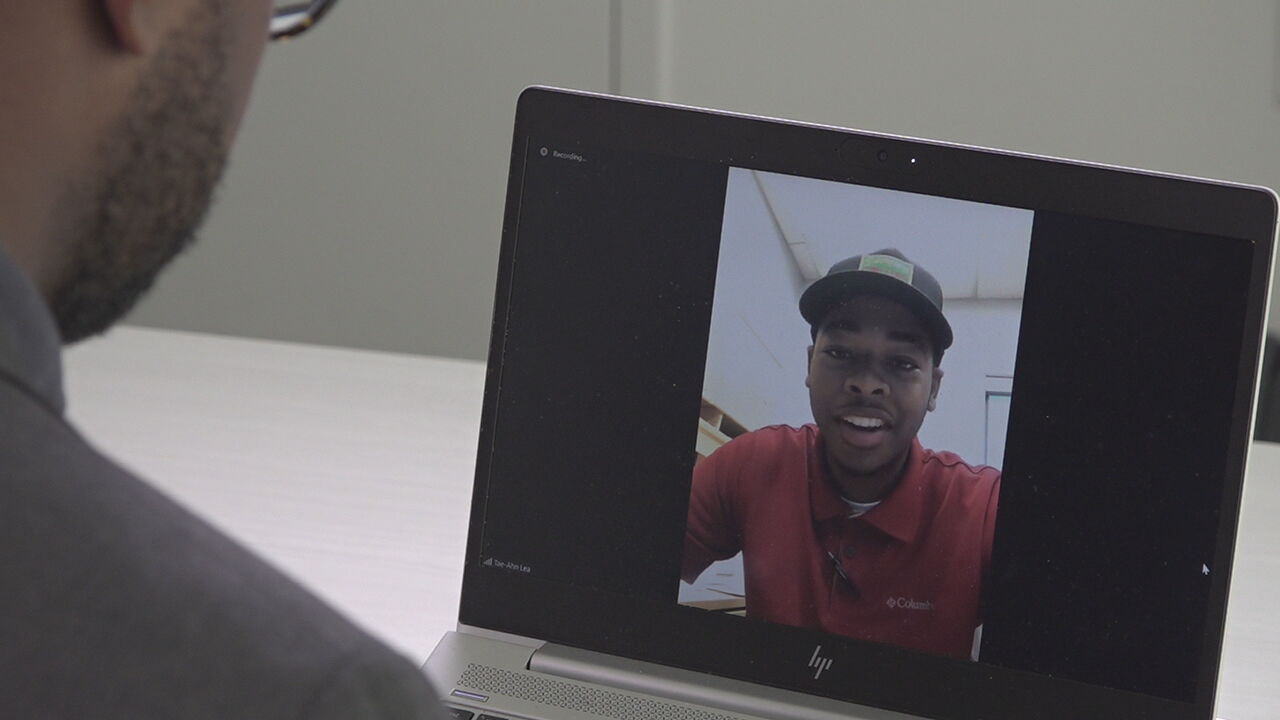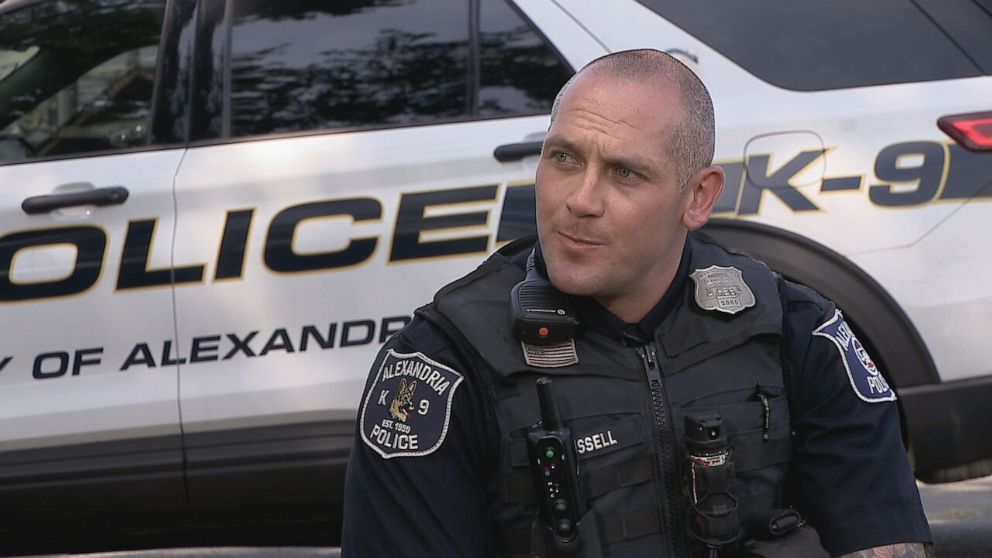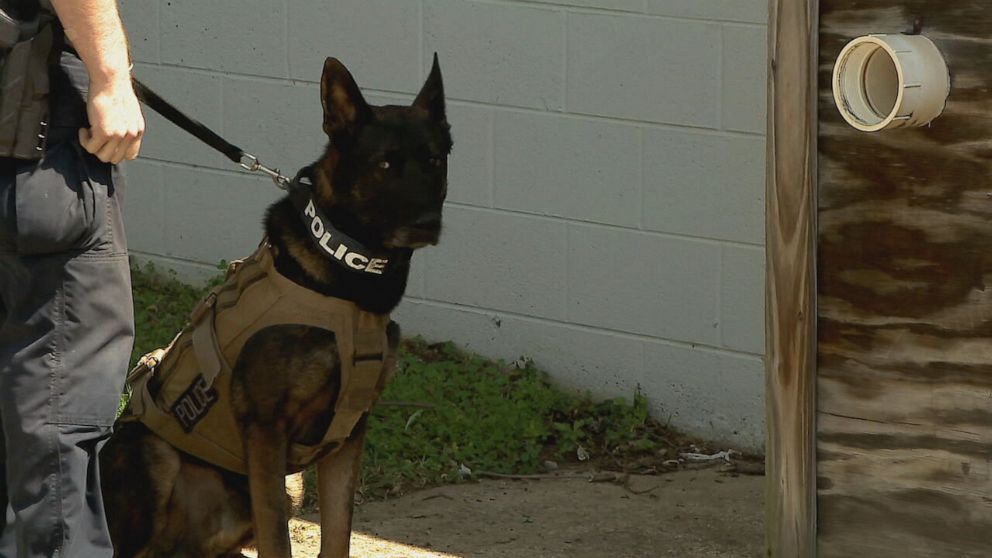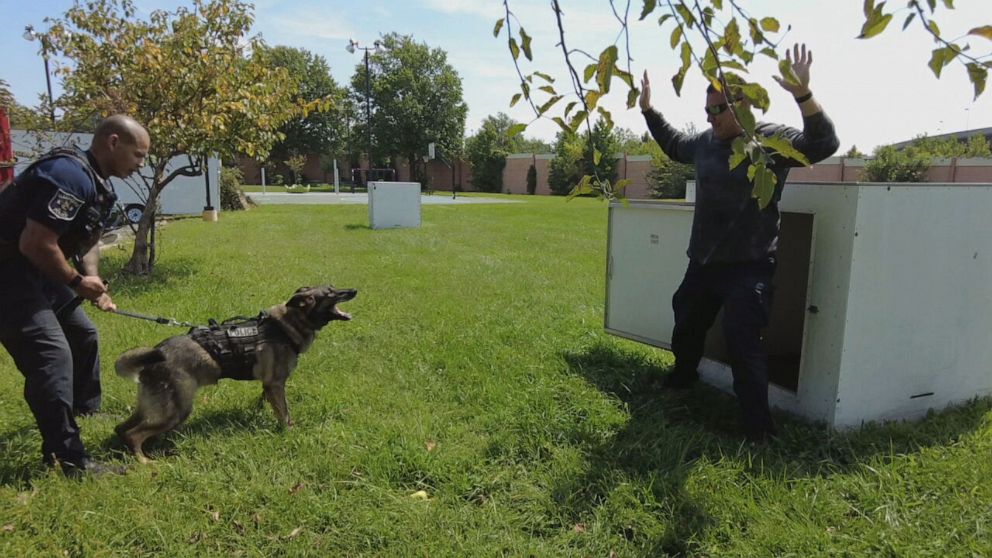K-9 police units face pressure to change amid drug policy reform
Tae-Ahn Lea says he had no previous criminal record when the 18-year-old was pulled over for a routine traffic stop in Louisville, Kentucky, in August 2018.
Yet, he said he was forced to stand by the side of the road, handcuffed, while the Louisville Metro Police searched his car after its K-9 unit alerted police to drugs -- despite Lea insisting otherwise.

"Well, my heart dropped because I knew there wasn't drugs in that car," Lea told ABC News. "I dropped my head down … And I told them multiple times that I didn't [have drugs] when they asked me, because I didn't."
Lea said that police never found anything illegal inside the car, but for nearly 25 minutes they turned the car inside out -- even checking under the lid of his drink for contraband.
Lawrence Myers, a professor at Auburn University's College of Veterinary Medicine, said that Lea's incident is an example of why policing, and use of K-9 units, need to change.
"Dogs make mistakes. Sometimes a mistake resides in the handler's suspicions," said Myers. "If the handler suspects that, in fact, drugs are present, it's very difficult to behave in such a fashion that you don't unconsciously cue the dog to alert."
Police canines are often used in traffic stops when an officer needs to confirm a suspicion. The dogs are trained to detect multiple drugs, but alert for all in the same way.

Myers said there are myriad factors that can influence police dog detection.
"Certainly their sensory capacity, certainly their training and the maintenance of that training, certainly the training of the handler and the maintenance of that training… That might bias the handler or bias the dog to unconsciously cue things," said Myers.
But as marijuana becomes increasingly legalized in states across the country, police canines cannot distinguish between marijuana or an illegal drug.
Over the summer, Virginia became the 16th state to legalize adult possession of marijuana.
Sgt. Kyle Russell of the Alexandria, Virginia, police department, said that drug-sniffing dogs trained to detect marijuana were retired from the police unit because they can no longer be used to establish probable cause for search.
"[Marijuana] is legal… We don't want it to be a tricky situation," said Russell, who said there is no way to train a dog to signal certain quantities of drugs. "It's better to not violate someone's rights then to maybe get a couple ounces of marijuana."

Russell's canine partner, Taz, is trained to sniff out cocaine, meth and heroin. According to the National Police Dog Foundation, a police K-9 alone can cost $8,000, but patrol school and other specialized training can range from $12,000 to $15,000.
Russell said he is optimistic that agencies are adapting their training.
"I think people have found that the money, time and resources that go into programs really benefits the community because the dogs can do so many amazing things that we as humans or police officers just wouldn't be able to do," said Russell.
"I think a lot of agencies and others have gotten better at learning dog behavior," he added.
Despite the good that comes from police dogs, they have a tense history in the U.S. -- especially along racial lines when they were first used against enslaved Black people and later against Civil Rights protesters.

In Lea's case, he said the historical context drove him to speak up about his experience. In a pending lawsuit against the Louisville Metro Police Department and the officers involved in his stop, Lea claimed he was "targeted" because he is a Black man and that his civil rights were violated.
"Growing up [as a] young black male, you know, never want to put my mother in that, you know, scenario to see me in handcuffs," Lea said. "Pull over on the side of the road. Canine dogs around, police officers around. She taught me way better than that."
The Louisville Metro Police and the officers denied Lea's allegations in court papers. ABC reached out to LMPD for comment, but has not yet received a response.
In 2019, after Lea's traffic stop, the Louisville Metro Police Department put a new policy in place for how officers pull people over, including guidance that someone being nervous or in a high-crime area are not indicators to justify certain police actions, as well as guidelines for handcuffing someone who is not under arrest.
In terms of dogs within police units, Sgt. Russell of Alexandria, Virginia, said that with proper and updated training, man's best friend will likely remain in place.
"I think people recognize the fact that the dogs are amazing animals and their noses can do incredible things," he said. "I think they're here to stay as long as canine teams continue to deploy them properly."



